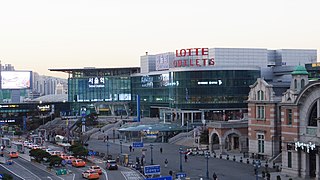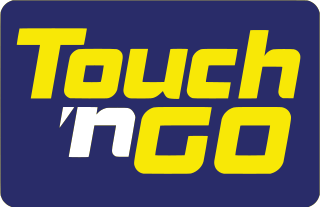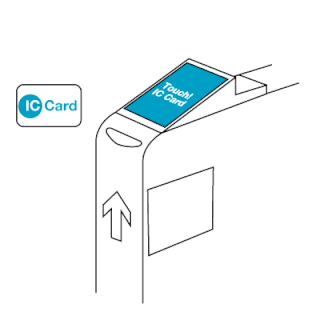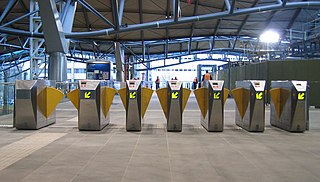This article needs additional citations for verification .(July 2019) |
KTX Family Card is the loyalty program and membership card of Korail. This card is issued by Korail Networks, subsidiary of Korail.
This article needs additional citations for verification .(July 2019) |
KTX Family Card is the loyalty program and membership card of Korail. This card is issued by Korail Networks, subsidiary of Korail.
In the 1980s, the National Railroad Administration started to issue Railroad Membership Cards. This membership card only had a 10-digit membership number on it, this type of card is widely used until 1998. In 1998, quick-ticket machines and a new membership card with a magnetic strip were introduced. Although the quick-ticket machine had many benefits, the machine and new card were not widely used. The current version of KTX Family Card with IC chip (Smart card) was introduced in 2004.[ citation needed ]

The Seoul Metropolitan Subway is a metropolitan railway system consisting of 23 rapid transit, light metro, commuter rail and people mover lines located in northwest South Korea. The system serves most of the Seoul Metropolitan Area including the Incheon metropolis and satellite cities in Gyeonggi province. Some regional lines in the network stretch out beyond the Seoul Metropolitan Area to rural areas in northern Chungnam province and western Gangwon province, that lie over 100 km (62 mi) away from the capital.

The Korea Railroad Corporation, branded as KORAIL, is the national railway operator in South Korea. Currently, KORAIL is a public corporation, managed by Ministry of Land, Infrastructure and Transportation.

Korea Train eXpress (Korean: 한국고속철도), often known as KTX, is South Korea's high-speed rail system, operated by Korail. Construction began on the high-speed line from Seoul to Busan in 1992. KTX services were launched on April 1, 2004.

Seoul Station is a major railway station in Seoul, the capital of South Korea. The station is served by the Korail Intercity Lines and the commuter trains of the Seoul Metropolitan Subway.

Yongsan Station is a major railway station in the Yongsan District of Seoul, South Korea. The station adjoins the Yongsan Electronics Market. The station is the terminus for high-speed and long-distance trains on a number of railway lines, including most trains on the Honam Line, its high-speed counterpart, and all trains on the Janghang and Jeolla Lines.

Touch 'n Go is a contactless smart card system used for electronic payments in Malaysia. The system was introduced in 1997 and is widely used for toll payments on highways, public transportation, parking, and other services. The card is equipped with a radio-frequency identification (RFID) chip that allows users to make payments by simply tapping the card on a reader device. Touch 'n Go cards can be reloaded with funds either online or at designated reload kiosks. The system has become a popular and convenient way for Malaysians to make cashless transactions.

T-money is a rechargeable series of smart cards and other "smart" devices used for paying transportation fares in and around Seoul and other areas of South Korea. T-money can also be used in lieu of cash or credit cards in some convenience stores and other businesses. The T-money System has been implemented and is being operated by T-money Co., Ltd of which 34.4% owned by Seoul Special City Government, 31.85% owned by LG CNS, and 15.73% owned by Credit Card Union.

AREX is a South Korean airport rail link and commuter rail line that links Incheon International Airport with Seoul Station via Gimpo International Airport. The section between the two airports opened on March 23, 2007, and line was extended to Seoul Station on December 29, 2010. Long-distance Korea Train Express high speed trains started to use the line from June 30, 2014, but discontinued service in March 2018 due to low ridership.

Rail transport in South Korea is a part of the transport network in South Korea and an important mode of the conveyance of people and goods, though railways play a secondary role compared to the road network. The network consists of 4,285 km (2,663 mi) of standard-gauge lines connecting all major cities with the exception of Jeju City on Jeju Island, which does not have railways; of the network, 2,790 km (1,730 mi) are double-tracked and 3,187 km (1,980 mi) are electrified. In 2018, rails carried 11.5 percent of all traffic in South Korea – 134.8 million passengers and 30.9 million tonnes of freight – with roads carrying 88.3 percent.
Seoul, the capital and largest city in South Korea, accounts for only 0.6% of the country's total land area, yet it is home to around 19% of the population. The population density in Seoul demands a great deal of the city's transportation systems, which are regarded by many as among the best and most advanced in the world. Seoul is very well connected by its subway and bus systems, and the city is also very supportive of pedestrian foot travel. In 2006 it won the Sustainable Transport Award.

Cheonan–Asan station is a ground-level train station located mostly in Asan, Chungcheongnam-do, although part of it lies in the neighboring city of Cheonan. This station serves high-speed KTX trains that run from Seoul to either Busan or Mokpo. It is connected to Asan station, a railway station on the Janghang Line which is also served by Line 1 of the Seoul Subway.

Gwangmyeong station (Korean: 광명역) is a train station in Gwangmyeong, South Korea. The station was newly built as a stop of national railway operator Korail's KTX high-speed service, 22.0 km (13.7 mi) south of Seoul Station.

The Gyeongbu high-speed railway, also known as Gyeongbu HSR, is South Korea's first high-speed rail line from Seoul to Busan. KTX high-speed trains operate three sections of the line: on 1 April 2004, the first between a junction near Geumcheon-gu Office station, Seoul and a junction at Daejeonjochajang station north of Daejeon, and a second between a junction at Okcheon station, southeast of Daejeon, and a junction near Jicheon station, north of Daegu entered service; then on 1 November 2010, the third section, between a junction west of Daegu and Busan became operational. The missing gaps across the urban areas of Daejeon and Daegu were in construction for an expected opening in 2014, separate tracks into Seoul Station were also planned. The temporary ends of the three sections were connected to the parallel conventional Gyeongbu Line by tracks that will serve as interconnector branches upon the completion of the entire line. On 1 August 2015, construction on urban areas of Daejeon and Daegu were completed; all the sections of HSR line were connected.

The Honam high-speed railway, also known as Honam HSR, is a high-speed rail between Osong and Mokpo in South Korea. The line is a part of Korail's Korea Train Express (KTX) system, accelerating Seoul–Mokpo and Seoul–Gwangju KTX high-speed services which currently use the existing conventional Honam Line. On April 1, 2015, the line was inaugurated by the South Korean President Park Geun-hye with the attendance of 1200 invited guests and members of the public at Gwangju Songjeong Station in Gwangju, the line's terminus. The line diverges from Osong station on the Gyeongbu high-speed railway, and stops at Gongju, Iksan, Jeongeup Stations. Journey times between Seoul and Gwangju has been cut from 2 h 40 min to just 90 min, making daily commuting possible. The Honam HSR is intended to bring business, and economic opportunities to the province of Jeollanam-do, which has seen slower development than other parts of South Korea. The line has been open to the public since April 2, 2015 for revenue service.

Asan Station is a railway station on the Janghang Line which is also served by Line 1 of the Seoul Subway. Its located in Baebang-eup, Asan-si, Chungcheongnam-do, South Korea. Meanwhile, is served by all Saemaeul-ho and Mugunghwa-ho services on the Janghang Line.

The KTX-Sancheon is a South Korean high-speed train built by Hyundai Rotem in the second half of the 2000s and operated by Korail since March 2010. With a top speed of 305 km/h (189.5 mph), the KTX-Sancheon is the second commercial high-speed train operated in South Korea and the first domestic high-speed train that is designed and developed in South Korea.

The KTX-I, also known as the TGV-K or Korail Class 100000, is a South Korean high speed train class based on the French TGV Réseau. The 20-car formation of the trainsets without restaurant car is optimized for high capacity. The 46 trainsets were built partly in France and partly in South Korea in the framework of a technology transfer agreement, which was the basis for further domestic high-speed train development in South Korea.

Manaca, written in lower-case letters, manaca is a rechargeable contactless smart card used in Nagoya, Japan and the surrounding area since February 11, 2011, when it replaced the Tranpass magnetic fare card system. As of March 23, 2013, it became compatible with 9 other IC cards, allowing it to be used nationwide.

An automated fare collection (AFC) system is the collection of components that automate the ticketing system of a public transportation network – an automated version of manual fare collection. An AFC system is usually the basis for integrated ticketing.
The Korea Rail Pass, also commonly called the KR Pass, is a rail pass offered by Korail, the national railway operator of South Korea. The pass is offered exclusively to foreign visitors and is valid for most of the rail lines operated by Korail in the designated period, including KTX, the high-speed railway in South Korea. However, the pass is not valid for subways and tourist trains, even when they are also operated by Korail.